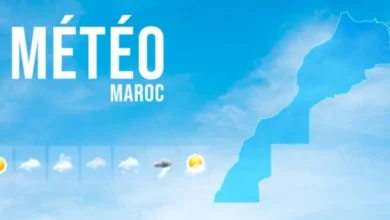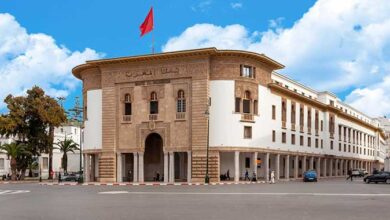The National Agency for Water and Forests Provides Clarifications Following the Publication of the Article Titled: “The Management of the Maâmora Forest in Sala Al Jadida: A Missed Opportunity.”

Clarification from the National Agency of Water and Forests on the Maâmora Forest Development in Sala Al Jadida
Following the publication of the article titled "The Development of the Maâmora Forest in Sala Al Jadida: A Missed Opportunity," the National Agency of Water and Forests (ANEF) wishes to provide the following clarifications:
1. Importance of the Maâmora Forest and Sala Al Jadida
The Maâmora Forest, particularly its urban side at Sala Al Jadida, serves as a vital green lung for the Rabat-Salé-Kénitra region. It represents a unique ecological space of cork oak, a recreational and sporting area for thousands of citizens, and a factor of cultural and tourist attraction. Recognizing this value, ANEF is implementing an integrated and participative approach for the protection, restoration, and sustainable enhancement of this natural heritage, as part of the national strategy "Forests of Morocco 2020-2030."
2. State of Deterioration and Observed Pressures
ANEF acknowledges that the forest’s proximity to urban areas exerts significant pressure, such as illegal dumping of waste and rubble, anarchic vehicle circulation, and incivility. These issues involve multiple stakeholders (local authorities, associations, and citizens). ANEF is acting cooperatively with them through:
- Regular cleaning campaigns
- Deployment of nine caretakers assigned to Sala Al Jadida
- Ongoing citizen awareness initiatives.
3. Plantations and Cork Oak Regeneration
Official regeneration operations (2024-2025 program) were carried out during the appropriate biological period, adhering to the technical standards set by ANEF. This program focuses on the restoration of cork oak in degraded areas. Young plants are safeguarded by a mesh fencing system (not simple barbed wire) to prevent trampling and grazing. The barbed wire mentioned in the article was a temporary measure that has since been replaced with a more suitable and sustainable solution.
4. Waste Management and Infrastructure
Waste management is a shared challenge. ANEF collaborates with local authorities to enhance infrastructure (appropriate bins, signage, collection points) while continuing its awareness efforts.
5. Budgets and Rehabilitation Works
Funds allocated for the Sala Al Jadida forest are planned, validated, and monitored by the relevant financial authorities. These cover visible works as well as studies, ecological monitoring, personnel mobilization, and awareness campaigns.
6. Tree Cutting
Contrary to the claims in the article, the operations in question are not "illegal cuts":
- They are part of a public contract executed by a private company.
- They involve the clearing of dead trees to reduce health and safety risks.
- They have been conducted in accordance with current regulations and forestry technical rules applicable to cork oak forests. Additionally, tree removals due to road projects in Sala Al Jadida fall outside the ANEF’s managed perimeter and relate to roadworks.
7. Structuring Value Enhancement Project
An integrated recreational development plan for Maâmora and Sala Al Jadida is currently being developed in partnership with the Rabat-Salé-Kénitra Region (Regional Development Program 2022-2027), with a budget of 15 million dirhams. This project includes:
- Banning motorized vehicle access,
- Creating environmentally friendly paths and recreational areas,
- Ongoing and sustainable maintenance of infrastructure.
Work is slated to commence in 2026.
8. Comparison with Urban Forests in Rabat
It is necessary to explain that the urban forests of Rabat (Nouzhat Hassan, Ibn Sina, etc.) are distinguished by their historical development and specific management conditions. The Sala Al Jadida forest is more recent and in the process of structuring but benefits from a priority program as part of the "Forests of Morocco 2020-2030" strategy, aimed at elevating its level of equipment and management to that of reference urban forests.
9. Stray Dogs and Other Nuisances
This is a shared concern among several partners (local authorities, veterinary services, animal protection associations). ANEF is working with these stakeholders to protect users and secure frequented areas while awaiting the implementation of more durable solutions.
Conclusion
The Sala Al Jadida forest is at the heart of ANEF’s priorities. Far from being a "missed opportunity," its development is part of an ambitious national dynamic that combines ecological regeneration, modern facilities, and cooperation with partners. ANEF reaffirms its commitment to making Maâmora an emblematic space for sustainability, conviviality, and a positive image of Morocco.
Press Contact:
Naoual CHIHI
Communication and Public Relations Advisor
National Agency of Water and Forests
+212 6 61 04 73 48
Email: [protected email]





